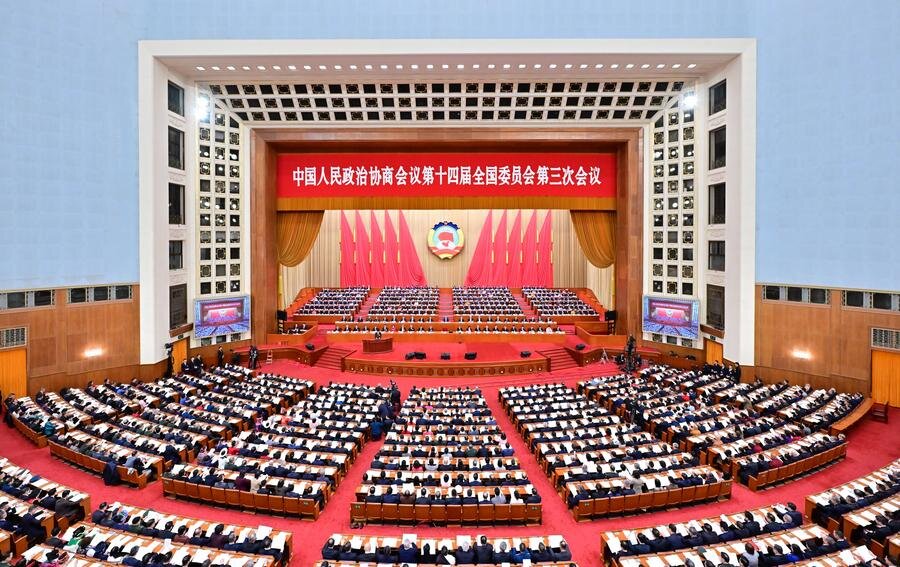Beijing steals the show: China’s CPPCC holds annual session


BEIJING- China’s top political advisory body held its annual session in Beijing on Tuesday.
President Xi Jinping and other Chinese leaders attended the opening meeting of the third session of the 14th National Committee of the Chinese People’s Political Consultative Conference (CPPCC) at the Great Hall of the People.
Addressing some 2,000 delegates, the chairman of the CPPCC National Committee delivered a work report on behalf of the body’s Standing Committee.
“We need to improve the CPPCC consultation systems and mechanisms, and the mechanisms for adopting, implementing, and providing feedback on consultation outcomes,” Wang Huning said.
He added, “We need to expand the coverage of channels and platforms for bolstering unity and friendship, intensify implementation of measures in consultative oversight, and give full play to the unique role of different sectors. Going forward, we will take solid steps to make improvements in these aspects.”
Wang said China’s main economic and social development targets have been accomplished and major strides have been made in the country’s modernization drive.
Members of the 14th CPPCC National Committee also participated in a group interview ahead of the opening meeting of the annual event.
The CPPCC serves as a platform that unites diverse political parties, independent prominent figures, people’s organizations, and representatives from various ethnic groups and sectors within society to engage in the political framework.
This initiative is a vital instrument for multiparty collaboration and political dialogue under the guidance of the Communist Party of China.
The National People’s Congress (NPC), China’s top legislature, will also hold its annual session on Wednesday.
The annual meetings are known as the Two Sessions.
The 2025 Two Sessions has grabbed global attention amid the US trade war against China.
On Tuesday, President Donald Trump gave the green light to an extra 10% levy on Chinese commodities. That meant a cumulative tariff of 20% in response to China’s alleged inaction on stopping the flow of drugs used to make fentanyl.
China has rejected such US allegations as baseless. China has carried out “in-depth” cooperation with relevant countries, including the United States, in addressing the issue of fentanyl-related substances and their precursors, according to Xinhua.
China has also responded to new US tariffs and increased import duties by 10-15%, covering a number of American agricultural and food products.
The US remains vulnerable to China targeting its agricultural exports.
China remains the biggest market for US agricultural products. The Asian country brought in nearly $30 billion of such American products in 2024.
For now, Beijing has focused on Washington’s Achilles heel. It is up to the White House to decide whether it wants to resolve trade problems with China through talks or to shift the economic challenges onto the American populace.